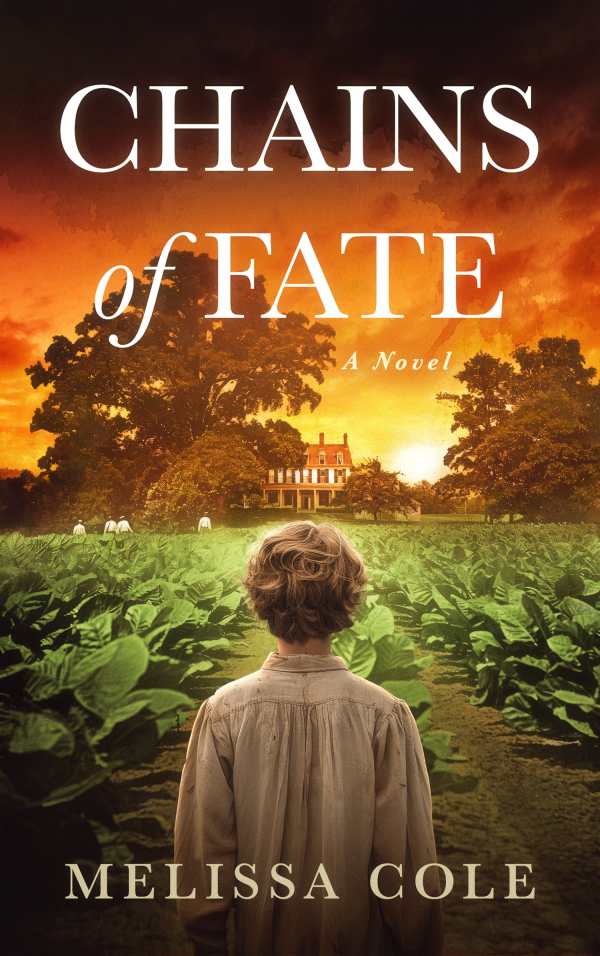Chains of Fate
A community remakes itself to fit a vision of freedom in the sympathetic Revolutionary War–era novel Chains of Fate.
The very notion of freedom—both of the soul and of the body—hangs in the balance in Chains of Fate, Melissa Cole’s historical novel about a man’s fight for liberty on multiple battlefields, alongside unlikely allies, and against countless foes.
Set against the backdrop of the Revolutionary War and the events leading up to it, this is a harrowing, often heartbreaking tale that depicts the lengths to which people are driven to attain true liberation. From his childhood woes in London to the harsh realities of indentured servitude in colonial America, Thomas has never been his own person. The intricacies of trading land him in an impossible situation: indentured and forced to work on a Virginian tobacco plantation for an undetermined amount of time.
On the plantation, Thomas gets his first real taste for rebellion when he and others who have been chained to the plantation escape and seek refuge among a community of Quakers. The true hope, though—at least in Thomas’s eyes—is the promise of complete and total freedom in exchange for serving in the Continental Army. Of course, there is the tenuous possibility that the war will claim more lives than it liberates, so Thomas must decide whether it is a risk he is willing to take.
Rich, vivid descriptions of even grim settings lay the initial foundation of an impassioned, absorbing read about a complex character. This trend continues throughout the story, with each new setting described in thorough terms, in the language of someone discovering the world piece by piece. And Thomas’s is not the only voice that stands out: The secondary cast is distinctive, and each person Thomas encounters adds another perspective on the question of what it means to be free. Their plights are sympathetic, and interest is generated regarding what their individual fates will be.
Context clues help when it comes to understanding the period, which is fleshed out in realistic, often disturbing terms. But the book’s scenes of bloodshed and abuse are balanced out by poignant conversations between people facing difficult circumstances. Ultimately, the book is a satisfying depiction of a community’s struggle for collective and personal autonomy against an unfeeling system.
In the historical novel Chains of Fate, a man in colonial America learns about the nature of freedom—and its limitations.
Reviewed by
Katelynn Watkins
Disclosure: This article is not an endorsement, but a review. The publisher of this book provided free copies of the book and paid a small fee to have their book reviewed by a professional reviewer. Foreword Reviews and Clarion Reviews make no guarantee that the publisher will receive a positive review. Foreword Magazine, Inc. is disclosing this in accordance with the Federal Trade Commission’s 16 CFR, Part 255.

